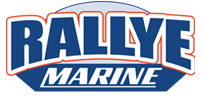Maintaining Your Boat’s Outboard Motor

Outboard motors power many small watercraft in service day thanks to their flexible application, their power, and their ease of maintenance. With an outboard motor, the major parts and maintenance are right at your fingertips. Everything from tiny bass fishing boats to larger yacht-style boats implement outboard motors to get the performance and features they desire. Here at Rallye Motoplex, we appreciate the value of a well-maintained outboard motor so we designed this short guide to help our customers understand outboard maintenance. If maintaining your outboard sounds like it will require more time or interest than you have to offer, take your boat by our Moncton, New Brunswick showroom and service center.
Servicing Your Engine After Boating
When you get off the water, it’s important to take a few steps to clean out your engine and get it ready to spend some time off the water. The first step is to purge your engine of water. Many engines use the water they are in to cool the engine. You’ll need to start the engine and let the water pump clear all this water from the engine block. Some engines actually come with a special hose connector to allow you to flush clean water through the engine and this is especially important if you are riding in saltwater which can become corrosive to engine parts if left untreated. Obviously, this step isn’t necessary if your engine has a closed-circuit liquid cooling system. Once this step is complete, drain your engine of gasoline and then let your engine run out any extra gas that might be in your carburetor or throttle body. The reason to do this is that fuel can break down over time and will eventually become corrosive to engine parts if left sitting for too long.
Keeping Things Clean & Lubricated
In between boating trips you’ll want to take some time to clean and lubricate the engine itself. Start by removing the protective covering (called cowling) that is used to keep water and debris out of the actual engine compartment. Examine the engine including the exterior of the engine block, the oil pan, and the area under the engine heads for any signs of oil leakage. If you find a leak, it’s probably time to take the engine into the shop. If not, wipe down the block and then start lubricating any moving parts. A little bit of engine oil on these parts works well, or you can go with a spray lubricant designed for engines. Then check the spark plugs to make sure they aren’t cracked or damaged and check the air filter to make sure it’s clean and that the air moves through it correctly. For four stroke engines, make sure there is plenty of oil, and that the oil isn’t too dark or sludgy.
Maintenance Schedule
As with all engines, it’s best to provide your outboard engine with regular maintenance. It’s important to not just take your motor into the shop when you’re having a big problem, but to also take it in at least once a year to make sure everything is running correctly and working smooth. Remember: while similar in design to car motors, outboard motors aren’t used in the same way and they need different types of maintenance. Car motors tend to move through different RPMs as they ride based on whether they are on the highway, in town, or idling. Boat motors, on the other hand, tend to spend larger amounts of time at the same RPM which means they can run through oil quicker than a car. For this reason, there’s more potential for deposits to form in the engine that can rob horsepower and performance. When you take your engine into a professional shop, they’ll be able to clean and maintain your engine and they’ll also be able to catch small problems before they become more serious.
If you need servicing for your outboard boat motor, stop by Rallye Motoplex in Moncton, New Brunswick. Our team of experienced technicians will give your boat the treatment it needs so you can spend more time on the water. We proudly serve the areas of Charlottetown, Fredericton, Saint John, and Bathurst, New Brunswick.

